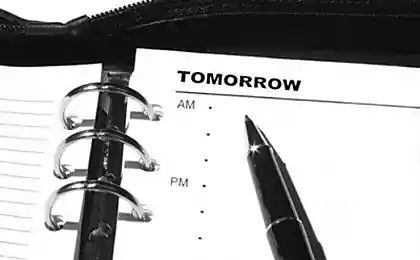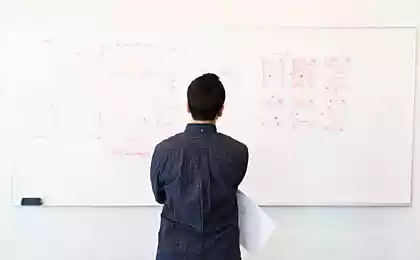222
Japanese second grader laughs at your mistakes in the task
The ability to think outside the box is a useful skill that should be developed. After all, it makes a person more versatile and effective, initiative and resourceful. And template approaches are boring and destructive. They turn people into a predictable biomachine that does everything as if it were written. How do you avoid that?
Today's edition. "Site" suggest to readers trick-and-answer. Try to solve these tasks to independently assess how easy it is for you to give non-standard solutions. Maybe it's worth working on?

Tasks with answers
Tips and answers
How many problems did you solve correctly? Don’t forget to share your results in the comments. Also check out the new puzzles we published recently. We hope that such an intellectual warm-up will appeal to you.
Today's edition. "Site" suggest to readers trick-and-answer. Try to solve these tasks to independently assess how easy it is for you to give non-standard solutions. Maybe it's worth working on?

Tasks with answers
- If it rains outside at 2 a.m., what is the probability that it will be sunny in 96 hours?
- Scientists have found that white sheep eat more grass than black sheep. How did the researchers calculate this?

- Xenia lives on the fifteenth floor. But the strange thing is that on the elevator to her floor, the girl rides either with neighbors or when it rains outside. If the weather is sunny and Xenia climbs the elevator alone, then she goes only to the tenth floor. And then he goes up the stairs to 15th. Why is she doing this?
- Calculate how many months of the year have 30 days.

- The teacher put the pencil on the floor and asked the students to jump over it. But none of the guys could do that. Why?
- Divide 20 by 1/2, subtract 8 and add 15. How much did you get?

Tips and answers
- If you think about it, 96 hours is exactly 4 days. In 96 hours, the clock will be 2 a.m. again. Needless to say, at this time the weather can not be sunny. So the probability is just zero.
- Both white and black sheep have similar appetites. However, due to the fact that white sheep in the world are much more, and grasses they eat much more, which is quite obvious.
- Ksenia is a small girl, she simply does not reach the button of the desired floor in the elevator. If she has an umbrella, then she can reach the cherished button with “fifteen”. Without an umbrella, it can only press the “ten”, and the remaining few floors go on foot.

- After a short calculation, many readers call four months: April, June, September, November. But that's the wrong answer. In fact, all months except February have 30 days (minimum). So the correct answer is eleven.
- The cunning teacher simply decided to make fun of the students and put a pencil on the floor near the wall.
- Many people think that dividing by 1⁄2 is the same as dividing by 2. Of course, with such calculations, you can not get the right answer. After all, dividing by 1⁄2 is like multiplying by 2. So we get 20 × 2 – 8 + 15 = 40 + 7 = 47.

How many problems did you solve correctly? Don’t forget to share your results in the comments. Also check out the new puzzles we published recently. We hope that such an intellectual warm-up will appeal to you.
Stephen Hawking will make you move the convolutions, but decide without the calculator
Chef Evgeny Klopotenko put on a skirt and excited fans, he explained why he did it




























